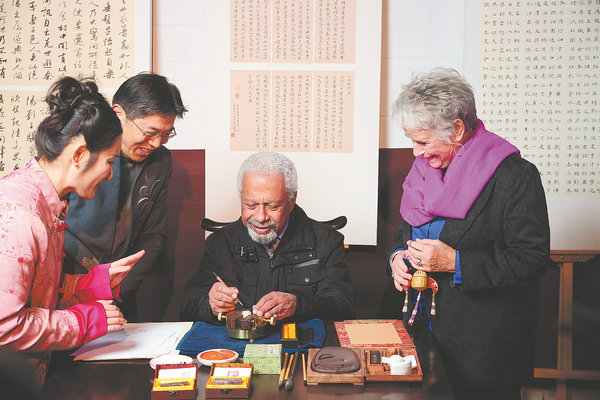

Memories of home, the smell of the sea lingering in the town he was born and raised in Zanzibar, and the sea horizon as seen from there, remain with Abdulrazak Gurnah, the 2021 Nobel literature laureate.
Having moved to the United Kingdom from Tanzania at 18, he has preserved a sense of nostalgia and keeps refreshing impressions of home as part of his inspiration, while infusing his observations as an outsider in British society and reflections on his displacement into his books.
From March 5 to 12, the 76-year-old writer visited Shanghai, as well as Ningbo in East China's Zhejiang province, and Beijing, and shared his life and career experiences with Chinese readers and writers in a variety of activities. It was Gurnah's first trip to China.
Notably, as the last public event of this trip, Gurnah was a guest on a nighttime livestream show on short video platform Douyin on March 12, where he interacted with English teacher-turned-influencer Dong Yuhui and netizens.
At its peak, there were more than 550,000 viewers watching the show at the same time.
After around 90 minutes, nearly 100,000 copies of Gurnah's novels were sold, generating revenue of more than 4 million yuan ($550,000). That figure grew to 110,000 copies later that night.
The Tanzanian-born British novelist was awarded the Nobel Prize in literature for his "uncompromising and compassionate penetration of the effects of colonialism and the fate of the refugee in the gulf between cultures and continents", according to the Swedish Academy that gives the award.
Among the 10 novels Gurnah has written, Paradise, published in 1994, was shortlisted for the Booker Prize that year.
Apart from writing, Gurnah was also a professor of English and post-colonial literatures at the University of Kent, until his retirement in 2017, and is now emeritus professor at its School of English.